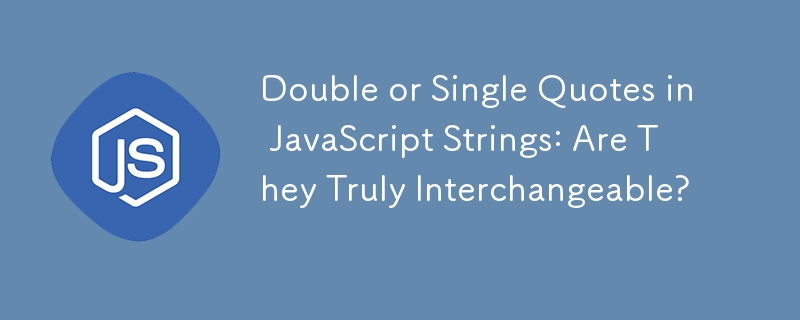

JavaScript provides两个选项to enclose string literals: double quotes (") and single quotes ('). While both are valid, questions arise about their interchangeability and potential advantages of one over the other.
In general, double quotes and single quotes are interchangeable for string literals in JavaScript. They serve the same purpose of enclosing a sequence of characters to define a string value.
One notable difference between double and single quotes is their usage when dealing with escape sequences and string interpolation. Double quotes need to escape double quotes (e.g., "Say "Hello"") using the backslash () character. Conversely, single quotes escape single quotes (e.g., 'Say 'Hello''). This can become more complex when escaping both types of quotes within the same string.
The choice between double and single quotes is often driven by programmer preference or the consistency of a particular JavaScript library. While there is no functional advantage of one over the other, it's recommended to adhere to the convention established within a codebase.
Introduced in ECMAScript 6, template literals use backticks (`) and offer several advantages:
Template literals provide a concise and flexible syntax for working with strings, but they are not as widely supported as traditional string literals.
JSON, a data format commonly used in web applications, formally specifies the use of double quotes for string values. When working with JSON data, it's recommended to use double quotes to maintain compatibility with the specification.
The above is the detailed content of Double or Single Quotes in JavaScript Strings: Are They Truly Interchangeable?. For more information, please follow other related articles on the PHP Chinese website!




